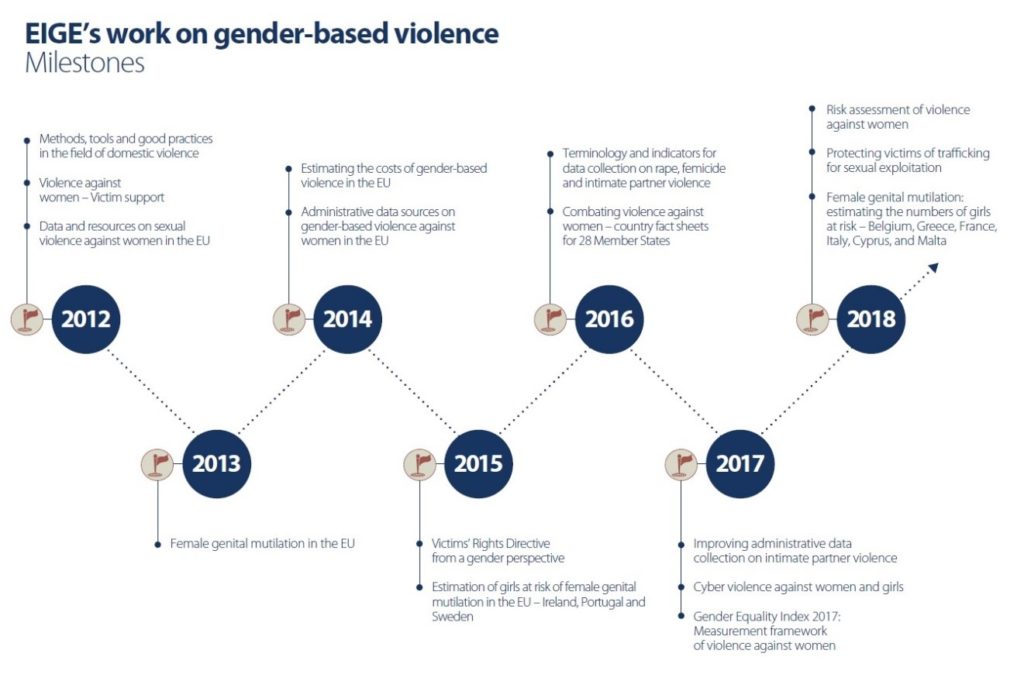The World Health Organization (WHO) has presented alarming data on the rise of gender-based violence, one in three women in the world has experienced some form of violence, or one-third of all women in the world are victims of gender-based violence. violence simply because they belong to the female sex. WHO is talking about an epidemic, with a tendency to become a pandemic.
Data vary from region to region, but it is a phenomenon that is present around the world, even in countries such as Japan, considered models of respect and peaceful coexistence, the percentage of gender assaults reaches 15%, which cannot be in the United States, 45% of women report having suffered some kind of aggression by their partner , and in Latin America this percentage amounts to 53%, according to UN data.
“You never enter the heart for violence” -Winston Churchill-
In Europe and the European Union the situation is a little better, the rate of women assaulted is between 20% and 25%, which is striking that the highest number of allegations of aggression is concentrated in two Nordic countries: Finland and Sweden. This draws attention because in these societies, women have already obtained claims far superior to those of other parts of the world.
Why, despite advances in legislation, women around the world are still abused?How can we understand this phenomenon if, at the same time, we can see unprecedented advances in women’s empowerment in so many positions?
The main agents of gender-based violence are men, especially loving couples. The phenomenon is mainly related to aggression within the couple, ranging from verbal violence, designed to minimize and humiliate women, to heinous rapes and murders, although the legislation of almost all Western countries has tightened sanctions for these acts, this measure does not appear to be effective.
Gender-based violence also has other faces. For example, a woman is more vulnerable to all kinds of attacks by strangers on the street; criminals are more likely to be successful if they try to rob a woman; on the other hand, there are men who take advantage of women in public transport. This last form of violence is hardly directed at a man.
As is well known, there is also discrimination in the workplace, in many companies women earn less than men, although they occupy the same position, and the majority of the poor, among the poorest, are women, they are almost always at children and parents with disabilities, such as some elderly people, so their income is partly lower than that of many men.
Despite the fact that the feminist liberation movement has ended more than five decades ago, there are still many men who do not seem willing to accept the new reality, most do not despise women who study or work, but they become reactive to other signs of feminine independence. For this reason, the increase in gender-based violence is especially concentrated in the sphere of couples.
It is very difficult for many men to stop looking at women as sexual objects at their service, these men see the unknown woman as a wandering body whose sole purpose is to satisfy their desires, even look at the woman herself in this way: legally acquired goods; they use their strength when the woman contradicts their claims; turn aggression into a mechanism of control and submission.
What about women who tolerate such situations in the 21st century?Many of them grew up in places where gender-based violence was the norm, learned from their mothers’ examples, been educated to be victims, and cannot find a way to do otherwise. Moreover, they often fail to achieve their economic independence and unconsciously believe that man has the right to impose his will.
To all this, it should be added that laws, even if they are very strict, are often applied flexibly and prejudiced; in many countries domestic violence is considered a misdemeanor; there are no convictions and gender authors are often not prosecuted. -Violence based on the same severity as other crimes are tried; families are permissive, communities and authorities are permissive; these people do not know that much of the violence as a whole would decrease significantly if we won the battle against gender-based violence.

